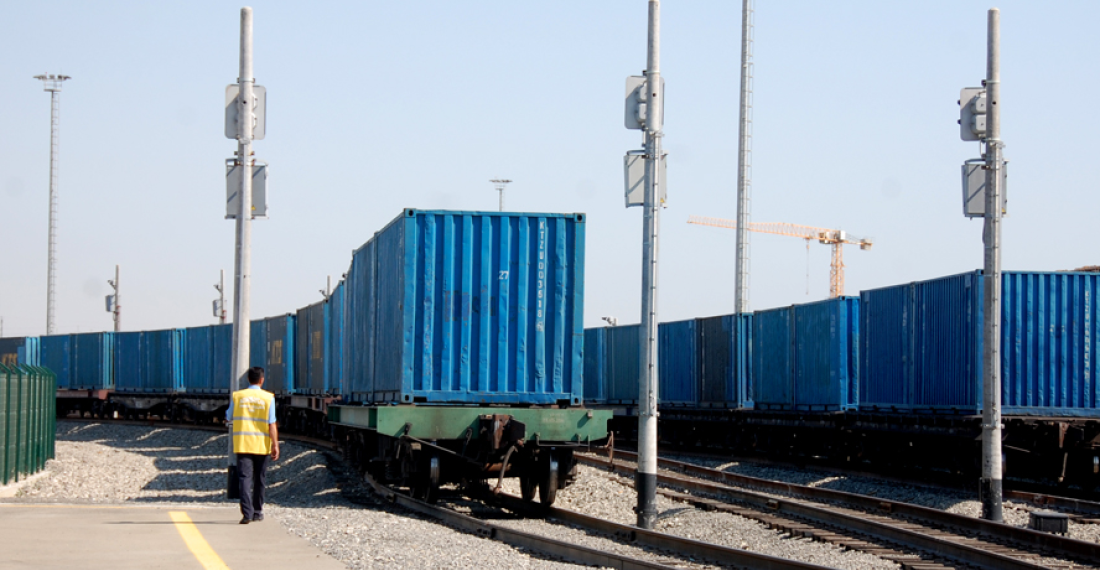Kazakhstan Temir Zholy, Azerbaijan Railways and Georgian Railway will sign an agreement on key principles of the establishment and functioning of a joint venture to develop the Trans-Caspian International Transport Route, also known as the Middle Corridor.
This was announced by the Kazakh government's press service on Thursday (22 June) after a meeting between their prime ministers, Alikhan Smailov and Ali Asadov, in Baku.
"The agreement setting up a joint logistics company for further development of the Trans-Caspian International Transport Route is a key document. Kazakhstan and Azerbaijan signed it today, and another participatory state, Georgia, is expected to sign the agreement shortly," the press service said.
"The company's main task will be cargo transportation between China and Europe. Maximum simplification of all processes. It took 53 days to transport the cargo by the route in the past, and now the delivery time is cut to 18-23 days," the press service quoted Smailov as saying.
The statement added that the new company will cut the delivery period along the Middle Corridor to 18 days this year, and to 10-15 days later.
The so-called Middle Corridor trade route connects China and Europe via Central Asia, the Caspian Sea, the South Caucasus and the Black Sea before arriving in Eastern Europe. It has gained in importance since the full-scale Russian invasion of Ukraine led to widespread international sanctions on Russia, significantly complicating international trade via the so-called "Northern Corridor" route.
Kazakhstan, Azerbaijan and Georgia are three key nodes on this alternative Middle Corridor route.






